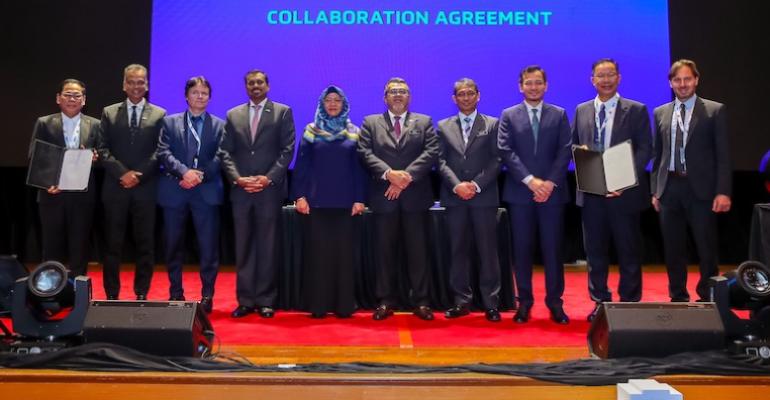The collaboration agreement with WinGD to develop ammonia fuelled engines and ammonia dual fuel engines was signed with MISC’s tanker arm AET and training school Akademi Laut Malaysia (ALAM). In addition to developing ammonia engines the agreement will play a crucial role in the training and development of seafarers to handle new fuels, the company said.
Dr Rudolf Holtbecker, Director Operations, WinGD, said “The success of the energy transition in shipping will take much more than technology and fuel flexibility. The crew on board these vessels need to be equipped with the knowledge and confidence required to ensure safe and efficient operation.
“The main engine technology will be familiar as our fuel flexible portfolio is based on our well-proven core technology. By partnering with AET & ALAM we can establish a solid foundation of knowledge and hands-on experience for crew to confidently operate these new vessels with safety and fuel efficiency built-in.”
ALAM also signed a collaboration agreement DNV for the research & development and the enhancement of current syllabuses for training maritime professionals at all levels, geared towards meeting the workforce needs of the low and zero-carbon pathway.
Cristina Saenz de Santa Maria, Regional Manager Southeast Asia, Pacific & India, Maritime at DNV, said, “Decarbonisation and digitalisation are steadily changing the maritime landscape as we collectively strive towards a net-zero future. This necessitates the upskilling and training of seafarers to ensure they have the skills and competence to operate new fuels and technologies introduced onboard safely and efficiently.
“Our co-operation with ALAM will enable them to tap on DNV’s extensive global training network and access comprehensive training programmes for both onboard and onshore personnel, imparting best-in-class industry practices and knowledge to shape the next generation of maritime leaders.”
Copyright © 2024. All rights reserved. Seatrade, a trading name of Informa Markets (UK) Limited.
Add Seatrade Maritime News to your Google News feed.  |

